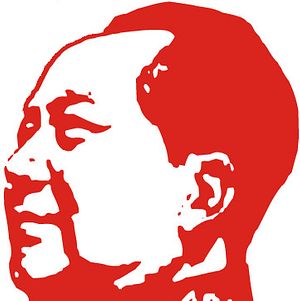This year, Boxing Day also celebrates the 120th birthday of the Great Helmsman, with Shaoshan in Hunan Province spending an absurd $2.5 billion on the celebration. But as photos of the great revolutionary are washed in his honor, a debate rages as to how the Great Chairman should be remembered. While the press and government of China are single-minded in all things — erring on the side of passive aggression, but just on the brink of shouting — the argument over Mao’s legacy defines the ideology of many.
Chief among these is China’s New Left. China has a growing (or shrinking, depending on your philosophical bent) group of Leftists that are both a pain in the neck for the government and the heart of its legitimacy. Their opinion on Mao is absolute, decrying his vilification for the deaths of dozens of millions with pre-PRC life expectancy figures. For an upcoming piece on China’s Left, Carlos Ottery of The World of Chinese spoke with Shi Mai, the editor of leftist online portal Maoflag. Shi said, “For the more general leftists, there are also many people who raise the flag of ‘love Mao Zedong’ and ‘Believe in Mao Zedong’, but some of their views may not fit Maoist theories. This is the complexity of China’s society now.”
Ottery also spoke with Li Minqi, a Maoist at the University of Utah, who said, “There are many controversial aspects in the Maoist period including the Great Leap Forward and the Cultural Revolution, on which the left has developed its own historical interpretation.” Li added that the Cultural Revolution “was a great heroic historical experiment” that had “many incredible, positive consequences.”
Years ago, when China was shut off to the rest of the world, there would have been no question as to the veneration of the great leader. As China gradually opens up, however, more and more people are questioning the government’s official position that the Great Helmsman was “70 percent right and 30 percent wrong.” Many are upset at the money spent on the adulation, and China’s Right condemn him (though usually not completely). Last year, four young men in Zhengzhou tore up his photo and posted it online. stirring up a fierce controversy in which they were detained and despised for their act.
The ideas of Mao Zedong Thought have largely been abandoned on the economic front as China moved toward a market-oriented economy, but Mao still stands tall. That said, the government’s attitude toward him is one of reverence and caution. One of China’s fiercest propaganda tabloids, the Global Times, published an editorial on Monday saying, “That Mao is a great man has a strong foundation in Chinese society. Some think Mao has had an infamous reputation in society. This is only a naïve delusion of these people.”
The West, as it always does, took a bit of a beating in the editorial as well: “Currently, the demonizing voices are mainly from the West, which also criticizes China’s socialist system.” The results of the revolution were positive (“until now”) the editorial added, saying, “It not only makes China outstanding among some underdeveloped countries, but also propels the West to feel unprecedented competition and challenges.”
However, it has not gone entirely unnoticed that China’s recent modern economic miracle would not have been possible if the government hadn’t freed the market economy from the shackles of Maoism. China’s Left and Right can argue until they’re blue in the face as to whether the Great Leap Forward cost 16 or 45 million lives or over less than fastidious comparisons to Christopher Columbus, the Century of Humiliation and the KMT. Regardless, Mao’s legacy — and more importantly, the ability to discuss it openly — will continue to be a defining feature of Chinese political life, just as it has been since the PRC began. If that was the perpetual revolution Mao was after, then this is a lovely birthday gift.
Carlos Ottery contributed to this article.

































